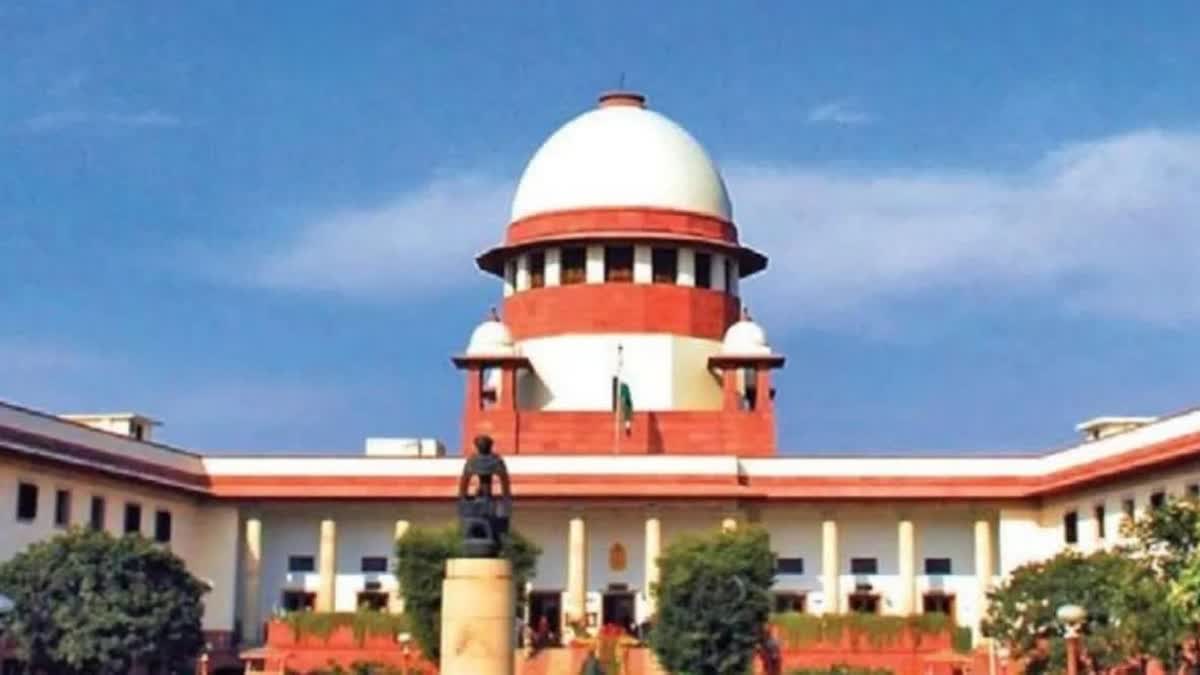New Delhi: In a significant development, the long-awaited hearing on the revocation of Article 370 and the reorganization of the state of Jammu and Kashmir finally commenced after a delay of almost four years. A constitution bench headed by Chief Justice of India D Y Chandrachud also comprising justices S K Kaul, Sanjeev Khanna, B R Gavai, and Surya Kant is hearing the matter.
A batch of petitions has been filed in the apex court challenging the Centre's move to do away with the special status to the erstwhile J&K state under Article 370. The hearing, which began in December 2019, has been eagerly anticipated since the Centre's decision to repeal Article 370. Although the judgment regarding the issues involved in the pleas could be decided by a five-member bench, the matter was not listed – till now.
Timeline of SC hearings over Article 370: The timeline of events surrounding the hearing sheds light on the complexities and delays associated with the case. In April 2022, the then-Chief Justice NV Ramana refrained from providing a definitive response when the matter was mentioned. Subsequently, in September of the same year, Chief Justice UU Lalit agreed to list the petitions.
However, his tenure was short-lived. The incumbent Chief Justice, D Y Chandrachud, expressed his inclination to list the matter on two separate occasions. Notably, Justices NV Ramana and Subhash Reddy, who had served on the previous constitution bench that dealt with this matter, have since retired. Chief Justice Chandrachud and Justice Sanjiv Khanna have joined the bench to fill the vacancies.
Centre's affidavit adds fresh twist to case: Adding a new twist to the ongoing proceedings, the Central government filed a fresh affidavit on Monday, outlining its stance on the dilution of Article 370. In the affidavit, the government contended that its decision had ushered in an era of unprecedented development, progress, security, and stability in the region of Jammu and Kashmir.
It highlighted the positive impact of the move, citing the uninterrupted functioning of schools, colleges, universities, hospitals, and other public institutions over the past three years. The affidavit emphasized that the region had witnessed a decline in strikes, disturbances, stone-pelting, and bandhs, which were previously commonplace occurrences.
The government asserted that such disruptive activities were now consigned to the past. Furthermore, the Centre underscored the return of normalcy to the region after enduring three decades of turmoil. It pointed out various indicators of normalcy, such as the establishment of a duly elected 3-tier Panchayati Raj System in Jammu and Kashmir, a drastic reduction of 97.2% in law and order events, a decline of 45.2% in terrorist-initiated instances in 2022 compared to 2019, and a significant drop in terrorist recruitment from 199 in 2018 to 12 in 2023, among other noteworthy achievements.
The fresh affidavit filed by the Central government serves as an additional piece of evidence in the ongoing hearing. It presents the government's perspective on the positive outcomes resulting from the revocation of Article 370, highlighting the overall stability and progress witnessed in Jammu and Kashmir.
The court will now carefully consider the arguments presented by both the petitioners and the government, ultimately shaping the future of the region and its constitutional status. As the hearing proceeds, the nation awaits the decision that will have far-reaching implications for the state of Jammu and Kashmir and its people.



